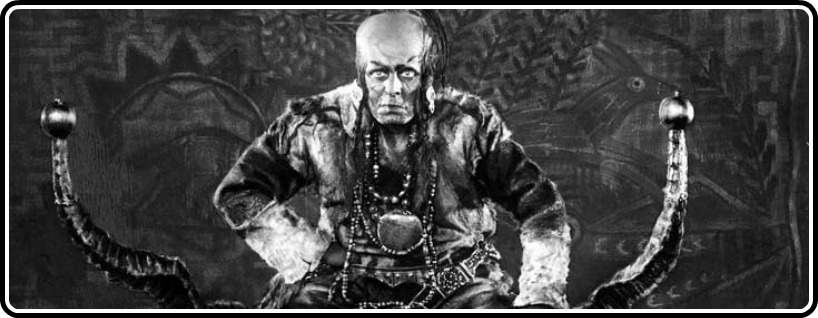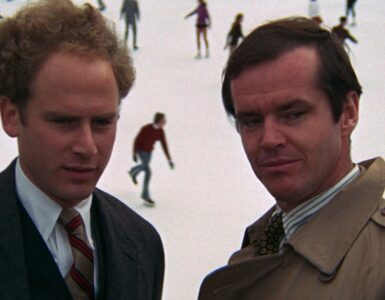When one thinks of cinematic epics, one can’t help but have their mind jump to such lavish and grandiose pictures like David Lean’s Lawrence Of Arabia or the trilogy of films under the Peter Jackson-directed Lord Of The Rings banner. Set pieces like the Battle Of Helms Deep define the genre, and with superheroes now taking the mantle of cinema’s more ostentatious efforts, the film epic is far from what it used to be.
But then again, what exactly did it used to be? With filmmakers truly expanding the medium since day one (it’s hard to argue with a film like Birth Of A Nation not being one of film’s greatest epics, or even a seemingly small film like Voyage To The Moon being a massive spectacle for its time), one of the film world’s greatest epics happens to come directly from the silent era. And it comes from none other than director Fritz Lang.
Entitled Die Nibelungen, the film follows in Lang’s career long lineage of monster-length, envelope pushing pictures. Clocking in at a breezy 288-ish minutes, Die Nibelungen was released in two parts, the pair of Siegfried and Kriemhild’s Revenge, in 1925 and 1928. The epic feature was penned by Lang and his then-wife Thea von Harbou (who was a big time player in Lang’s early part of his career), and is quite a dense narrative.
Finding the poem Nibelungenlied as a source material, the feature uses the split structure of the two films to its advantage. Based on the title of the first half of the film, one could surmise that we follow Sigfried, a man who steals the titular treasure that plays the focus of the entire collective. The treasure is cursed, which grinds the gears of our second feature, a weaving tale of revenge that, along with its prior film, isn’t so much a film that bathes in lavish set pieces, but instead allows these action bits to bathe within a world so beautifully and broodingly realized that it’s simply unlike any epic film before or since.
Throughout his lengthy career, the strongest aspect of Lang was (especially during his silent period) his overall craft. Nibelungen, while lengthy, may be the greatest distillation of Lang’s superior work stylistically. Be it a siege of a castle right on the heels of Helms Deep for the greatest action set piece committed to celluloid, or the icy cold interiors that make up much of this expressionist masterpiece, Lang’s work is both ahead of its time, and a perfect archetype of what Lang’s aesthetic truly was. Using various experimental techniques, both halves of Nibelungen are some of Lang’s most vibrant and lively filmmaking.
Narratively, the film is enthralling. Far from a fan of the fantasy film (this writer can hardly muster the energy or intrigue to revisit the Lord Of The Rings franchise), Nibelungen is a film that’s nearly impossible to turn away from. Arguably a greater stylistic effort than a narrative piece, the script is engrossing, and the epic narrative gives way to a handful of action packed set pieces as well as some genuinely thrilling acting turns. Paul Richter, Siegfried in the film, is aesthetically perfect for the role, and his performance is both admittedly over the top (as any silent performance was) as well as perfectly heroic. Co-star Margarete Schon fits the part just as well, with a beauty and vitality that is exceptionally fitting for the icy cold character she portrays.
With a Blu-ray recently released through Master’s Of Cinema (you can read Scott’s GREAT review of that disc here), Kino’s Blu-ray draws from similar sources. Both releases are bred from a brand new restoration by Friedrich-Wilhelm-Murnau-Stiftung, and while I myself can’t speak to the MoC Blu-ray, I can safely say that Kino’s recently released disc is superb. The transfer is fantastic, particularly when taking into account the relative age of the source material. There are a handful of hiccups within the restoration, but given the age of the film, it’s a fantastic bit of cinematic revival. The audio, particularly the score, is a tad on the nose, but it’s sonically appealing and adds to the overall epic aesthetic being crafted here. Supplements are existent as well. Featuring an interesting, if all too short, restoration documentary as well as some newsreel footage, the release could have stood to have a grander bit of retrospection held within it, but this is definitely a coup for silent film fans.
Die Nibelungen, if anything, is a fervent reminder that while the idea of ‘they just don’t make insert noun here like that anymore,’ when it comes to epic films, it’s more than true. Lang’s lengthy masterpiece is a thrilling meditation on greed and revenge, and thanks to Kino, we now have a breathtaking Blu-ray to bask in. One of the greatest epic films ever made, this silent classic is every bit as lively and pertinent as any modern day blockbuster. And frankly, it’s better made.





![Bergman Island (The Criterion Collection) [Blu-ray]](https://criterioncast.com/wp-content/uploads/2022/11/bergman-island-the-criterion-collection-blu-ray-400x496.jpg)
![This Is Not a Burial, It’s a Resurrection (The Criterion Collection) [Blu-ray]](https://criterioncast.com/wp-content/uploads/2022/11/this-is-not-a-burial-its-a-resurrection-the-criterion-collection-blu-ray-400x496.jpg)
![Lars von Trier's Europe Trilogy (The Criterion Collection) [The Element of Crime/Epidemic/Europa] [Blu-ray]](https://criterioncast.com/wp-content/uploads/2022/11/lars-von-triers-europe-trilogy-the-criterion-collection-the-element-of-400x496.jpg)
![Imitation of Life (The Criterion Collection) [Blu-ray]](https://criterioncast.com/wp-content/uploads/2022/11/imitation-of-life-the-criterion-collection-blu-ray-400x496.jpg)
![The Adventures of Baron Munchausen (The Criterion Collection) [4K UHD]](https://criterioncast.com/wp-content/uploads/2022/11/the-adventures-of-baron-munchausen-the-criterion-collection-4k-uhd-400x496.jpg)
![Cooley High [Criterion Collection] [Blu-ray] [1975]](https://criterioncast.com/wp-content/uploads/2022/11/cooley-high-criterion-collection-blu-ray-1975-400x496.jpg)